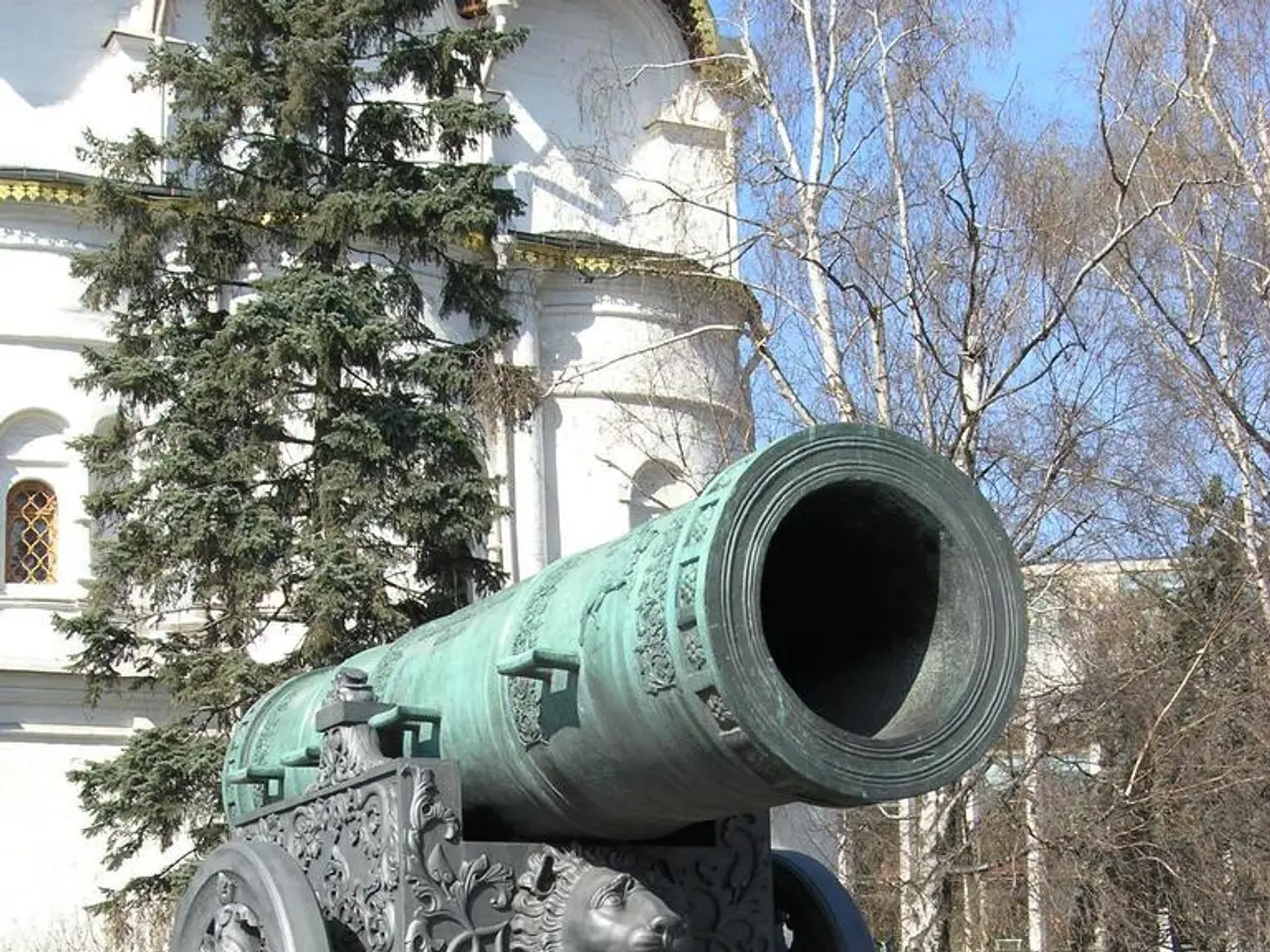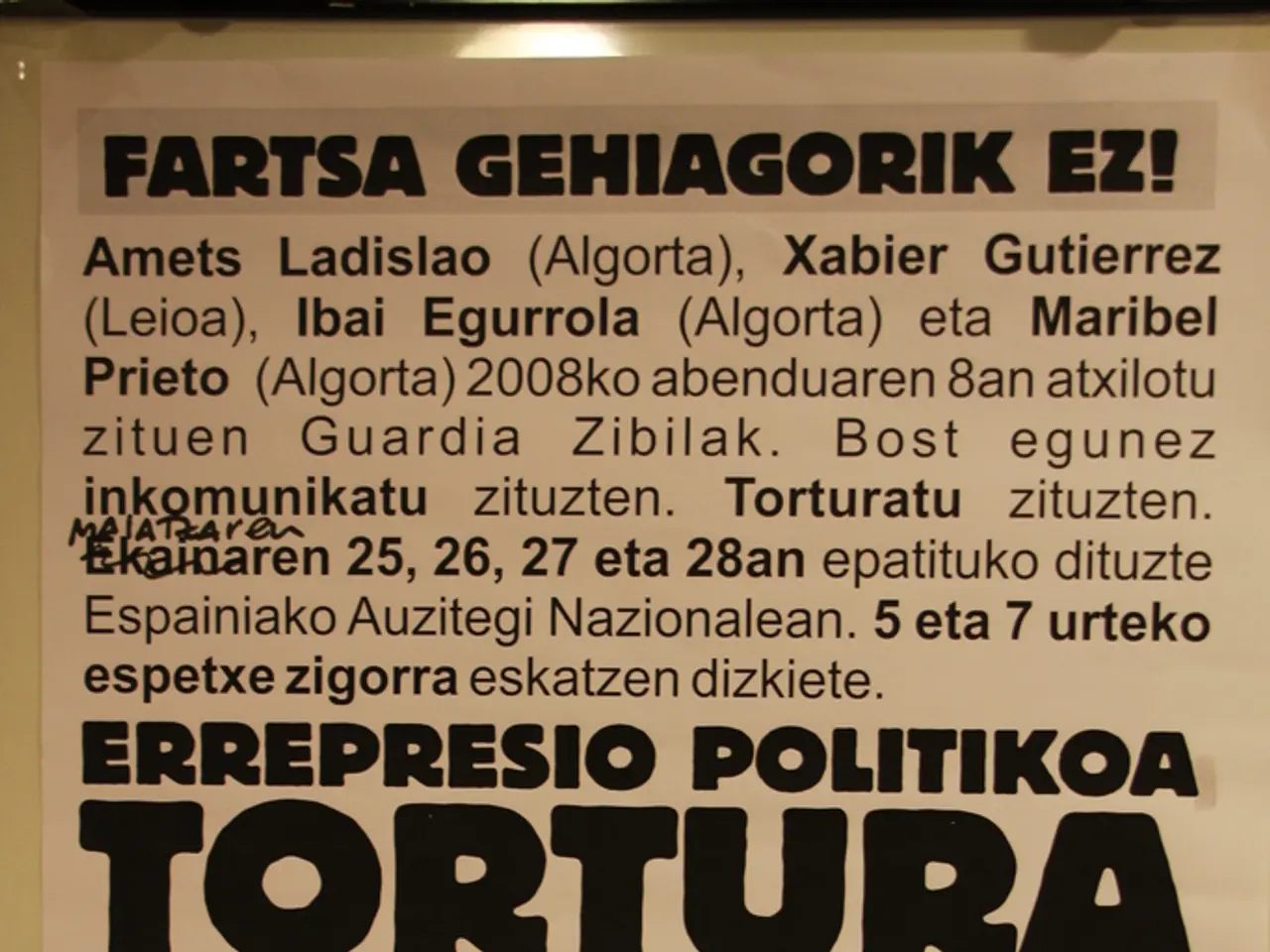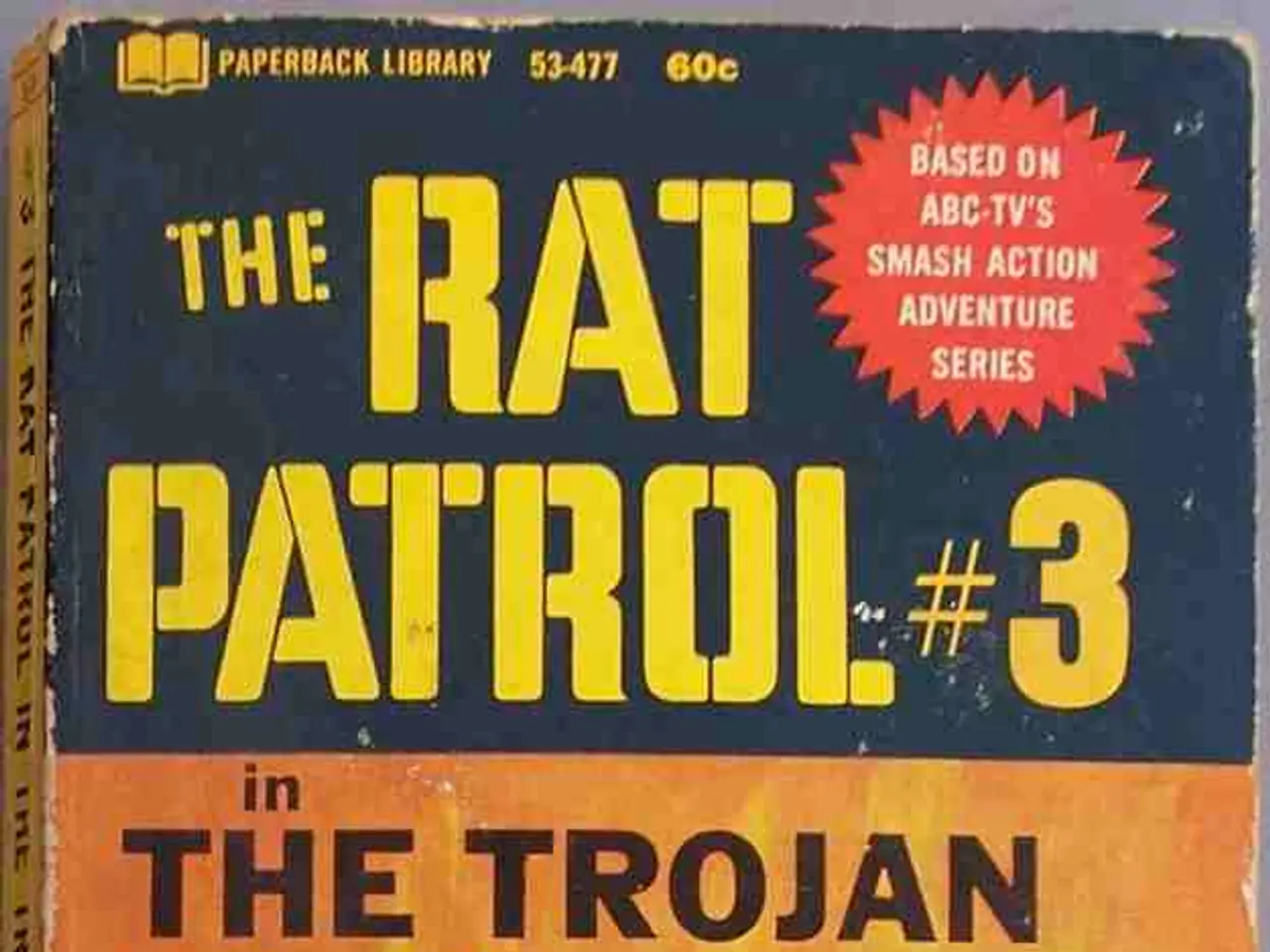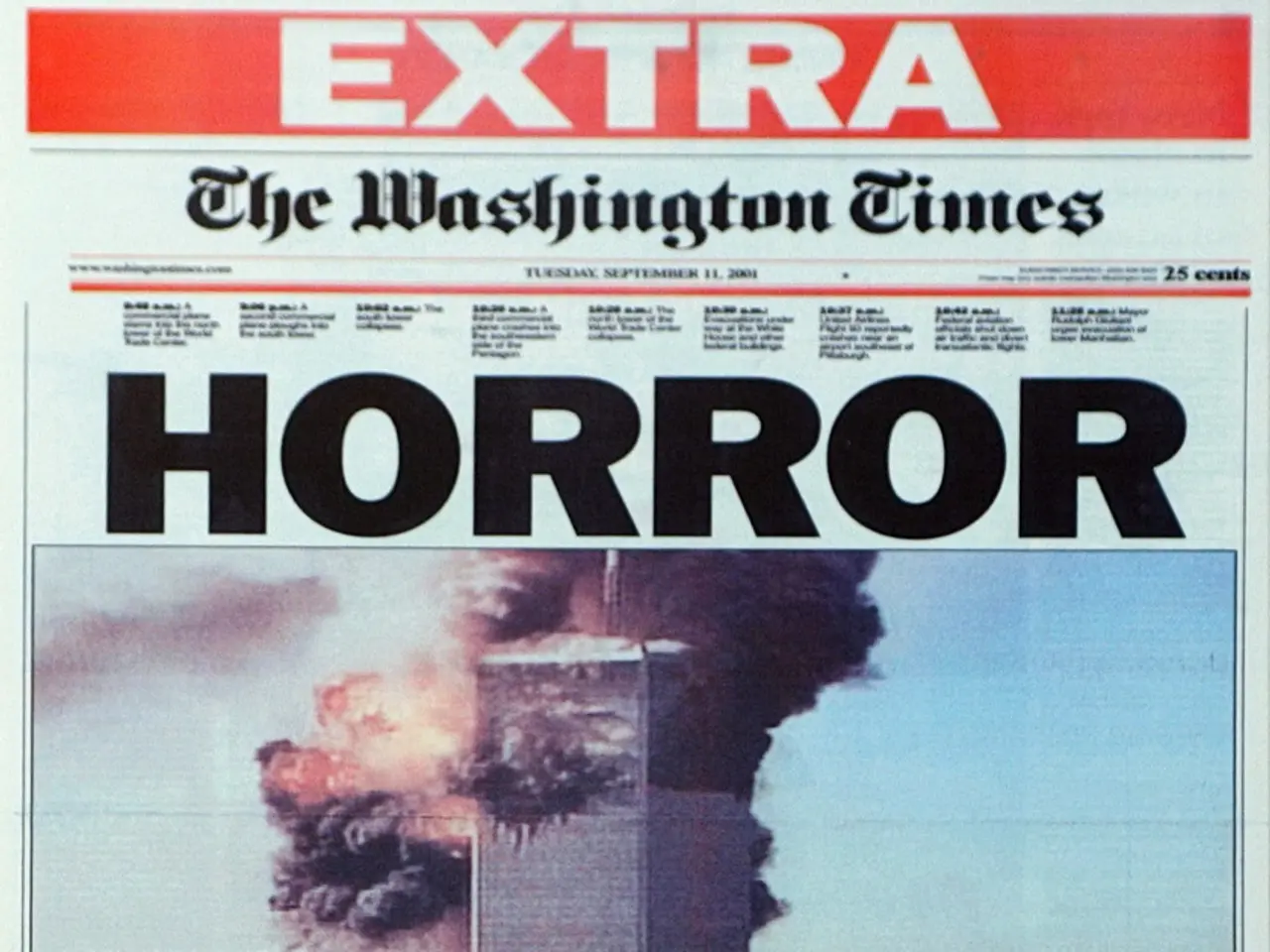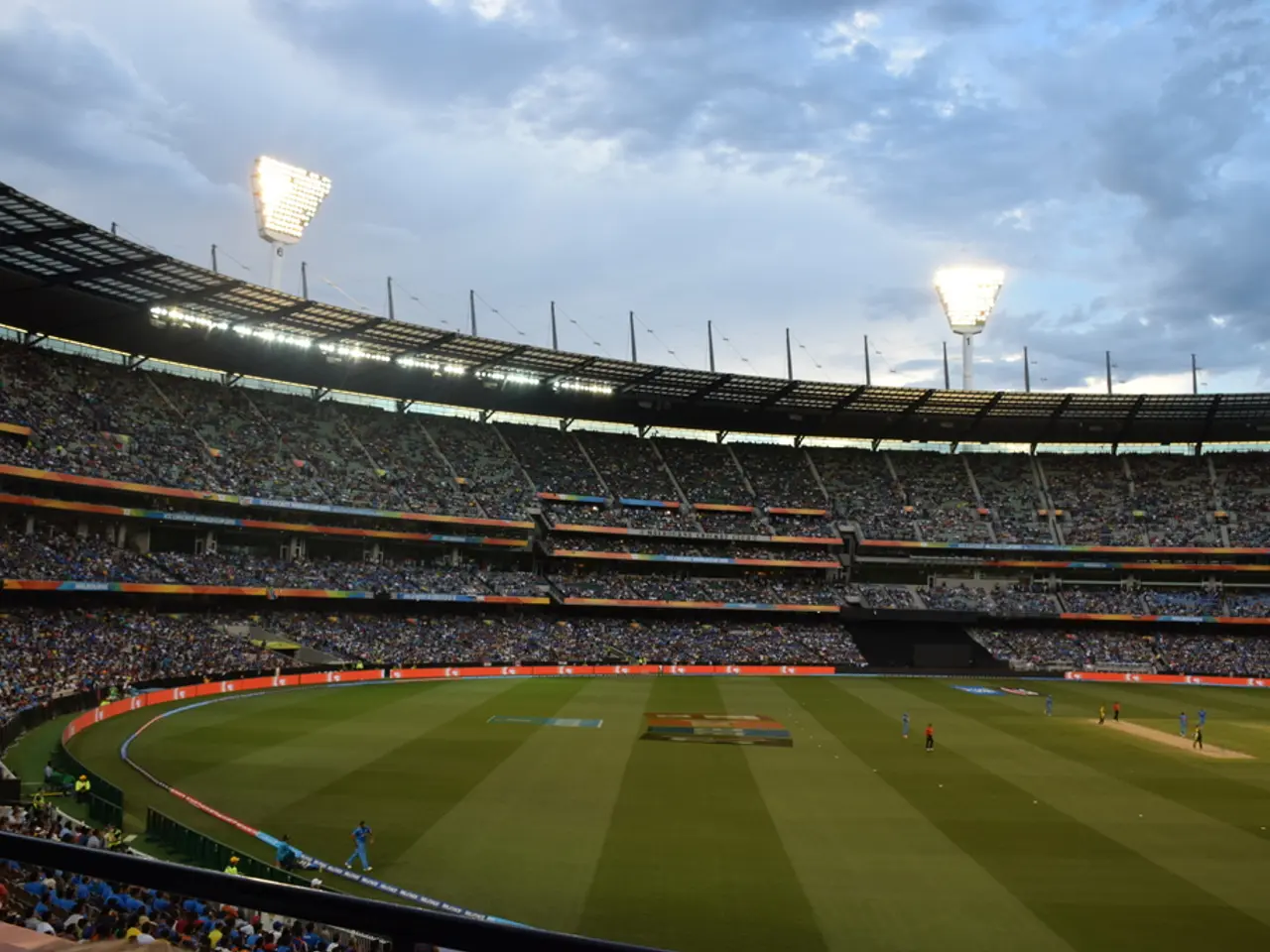Strike on a residential building in Kyiv results in the deadliest incident in the city since 2024
Kyiv, Ukraine, was the target of a devastating drone and missile attack on the night of July 31, 2025. The assault resulted in at least 31 deaths and 159 injuries, including multiple children among the casualties.
The attack, which involved over 300 Shahed drones and several Iskander-K cruise missiles, significantly damaged residential buildings, particularly in the Sviatoshynskyi district. Recovery operations are ongoing in this area, where a nine-story apartment partially collapsed, contributing to the death toll and injuries.
Ukrainian air defenses intercepted and jammed the majority of drones and missiles, specifically 288 drones and 3 missiles out of the total. However, some managed to hit targets, causing substantial destruction.
The Kremlin's aerial attacks on Ukrainian population centers have increased sharply this year. In fact, the building that partially collapsed was one of dozens of sites in Kyiv struck by Russian missiles and drones in the overnight attack.
The analysis indicates that Russia is increasingly deploying mixed missile and drone strikes to overwhelm Ukrainian air defenses, attempting to maximize damage to urban infrastructure and civilian areas. Ukrainian defenses remain robust, with high interception rates, but some attacks still penetrate, leading to severe casualties.
This attack represents one of the deadliest and most concentrated Russian bombardments on Kyiv in 2025, highlighting the ongoing escalation in drone and missile warfare tactics. The majority of deaths occurred in a single strike on an apartment block in Kyiv.
International responses include condemnation of the attacks, calls for increased pressure on Russia, and acknowledgment of NATO's involvement in supplying Ukraine with missiles and ammunition. US President Donald Trump has shortened a window for Russian President Vladimir Putin to negotiate a ceasefire or face greater sanctions due to Moscow's killing of Ukrainian civilians.
Overnight into Friday, more strikes on Ukraine killed at least six civilians and injured 27 others. The interval between large-scale salvo attacks has gone from about a month to as little as two days, according to new analysis from the Center for Strategic and International Studies (CSIS).
In the Donetsk region, a strike on a five-story block in the city of Kramatorsk killed three people. Ukrainian President Volodymyr Zelensky stated that in July alone, Russia used over 5,100 glide bombs, more than 3,800 "Shaheds" (drones), and nearly 260 missiles of various types.
More than 100 rescuers worked through the night to remove over 2,000 tons of rubble in search of survivors. At least 28 bodies have been recovered from the destroyed apartment block, including five children.
The attacks lean heavily on cheap-to-manufacture drone swarms intended to overwhelm Ukraine's air defenses. The number of munitions Russia uses in larger scale attacks has risen from about 100 munitions several years ago to nearly 300 munitions in 2025, according to the CSIS analysis.
As the world watches, the conflict in Ukraine continues to escalate, with civilians bearing the brunt of the violence. Kyiv has declared a day of mourning in the aftermath of this deadly attack.
The devastating attack on Kyiv, Ukraine, on July 31, 2025, affected not just the European continent but the entire world, as the use of over 300 Shahed drones and several Iskander-K cruise missiles resulted in numerous civilian casualties, including children.
News outlets around the world covered the attack, reporting on the sharp increase in Kremlin's aerial attacks on Ukrainian population centers, particularly in Kyiv, as indicated by the Center for Strategic and International Studies (CSIS).
Politicians from various countries have condemned these attacks and called for increased pressure on Russia, with some proposals to impose more sanctions or even negotiate a ceasefire. In response to these attacks, US President Donald Trump has shortened the window for Russian President Vladimir Putin to negotiate a ceasefire, citing the killing of Ukrainian civilians.
